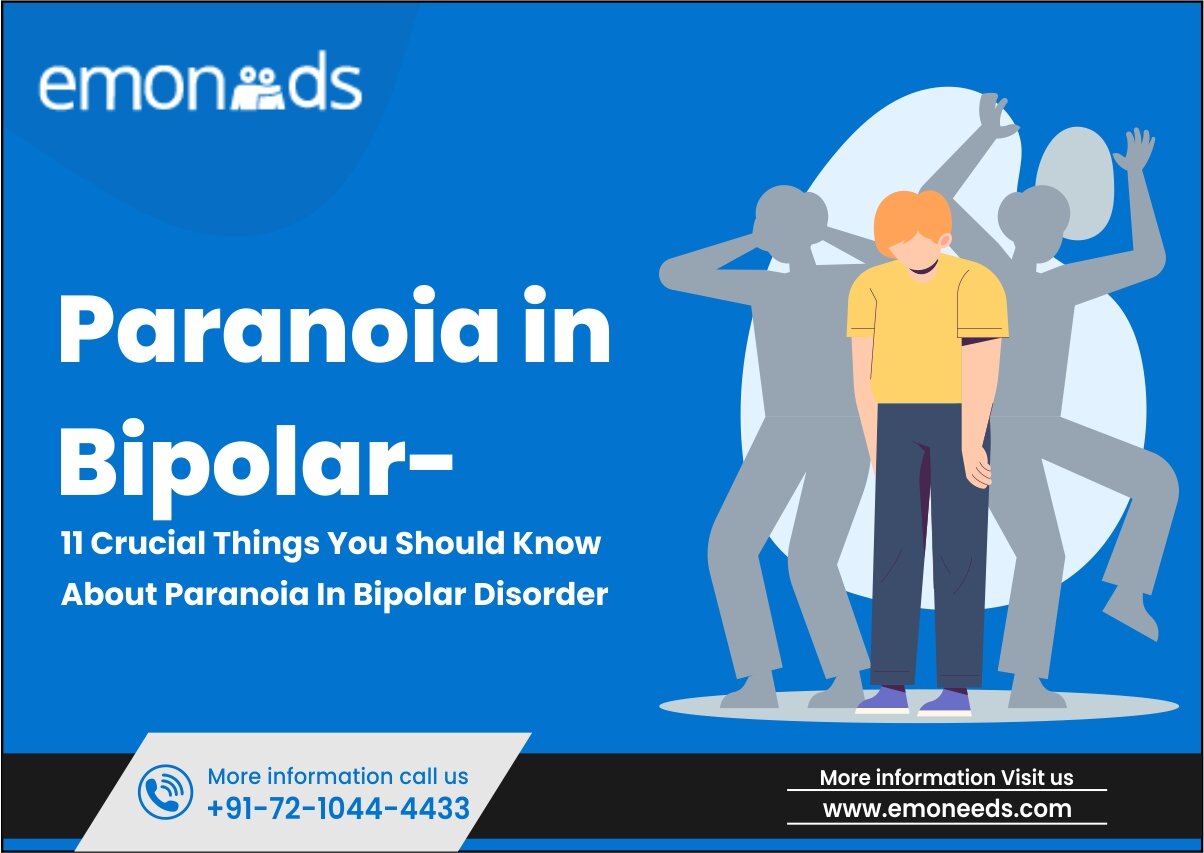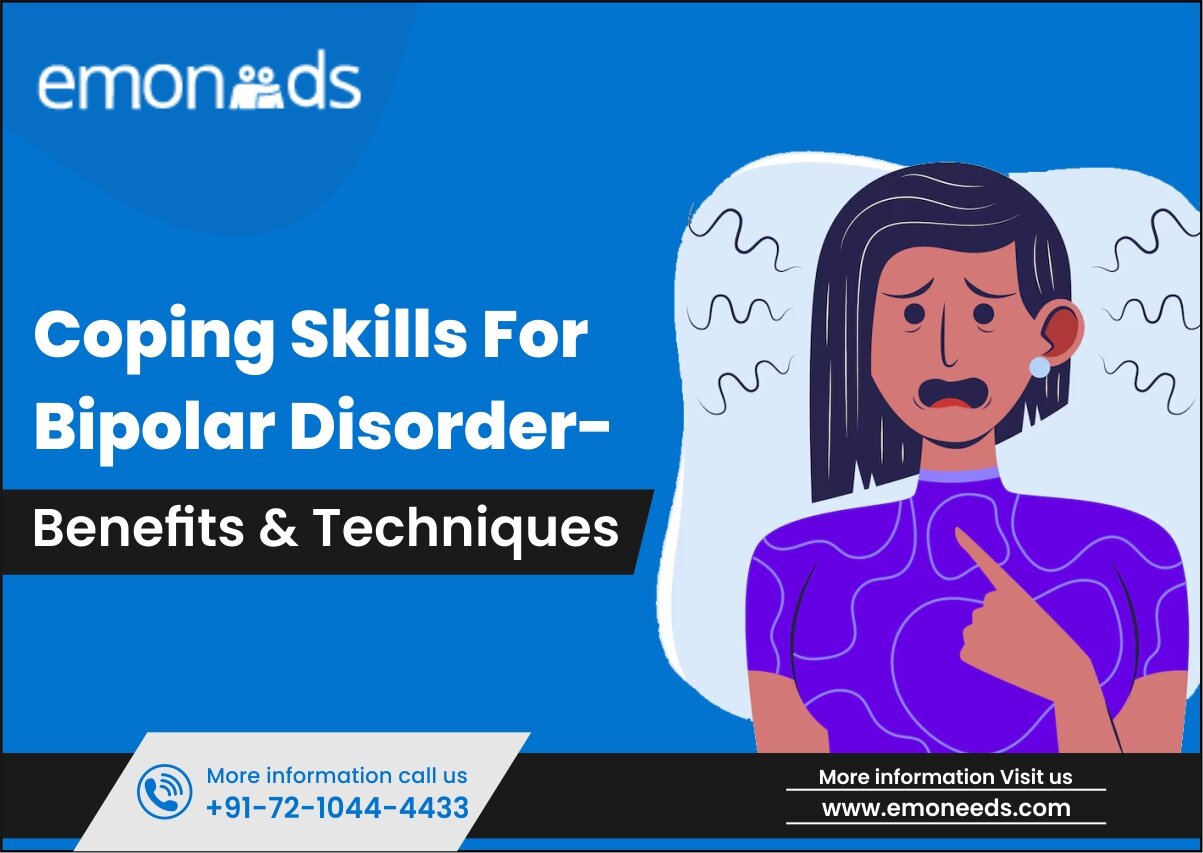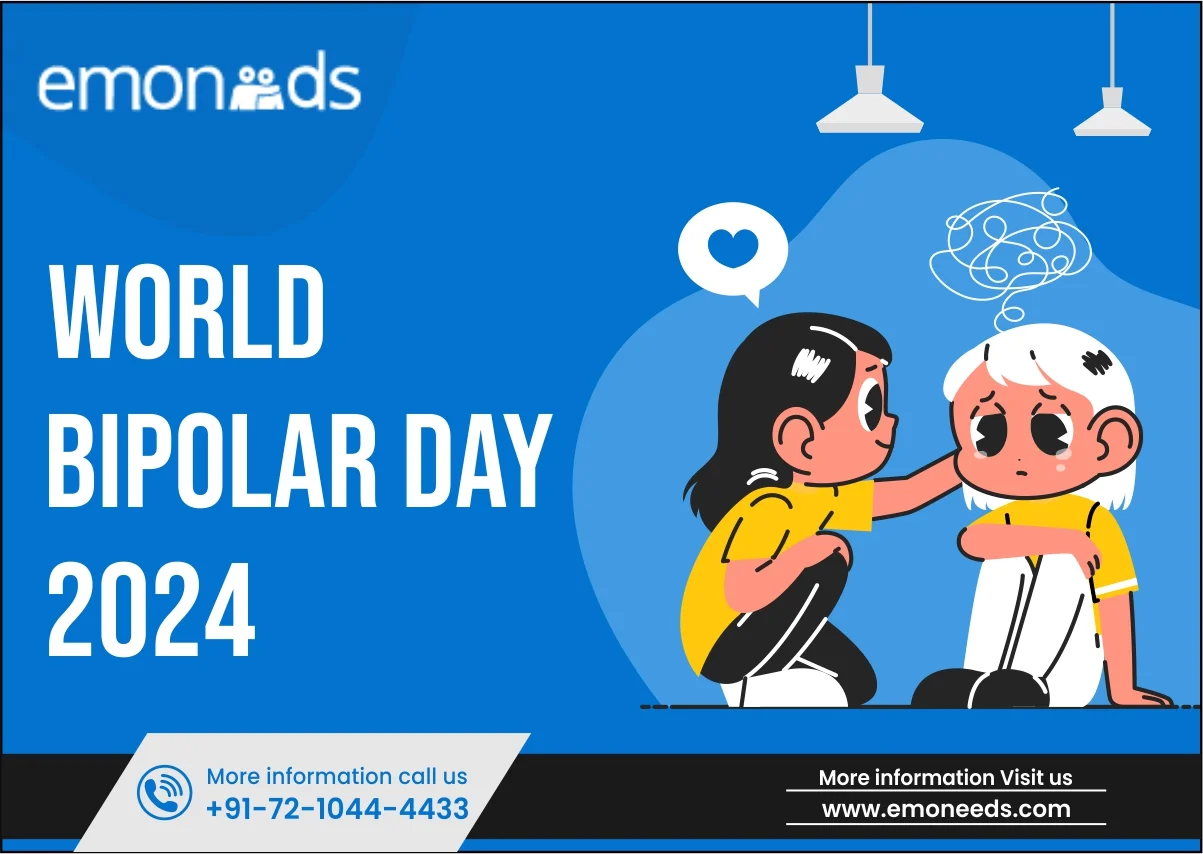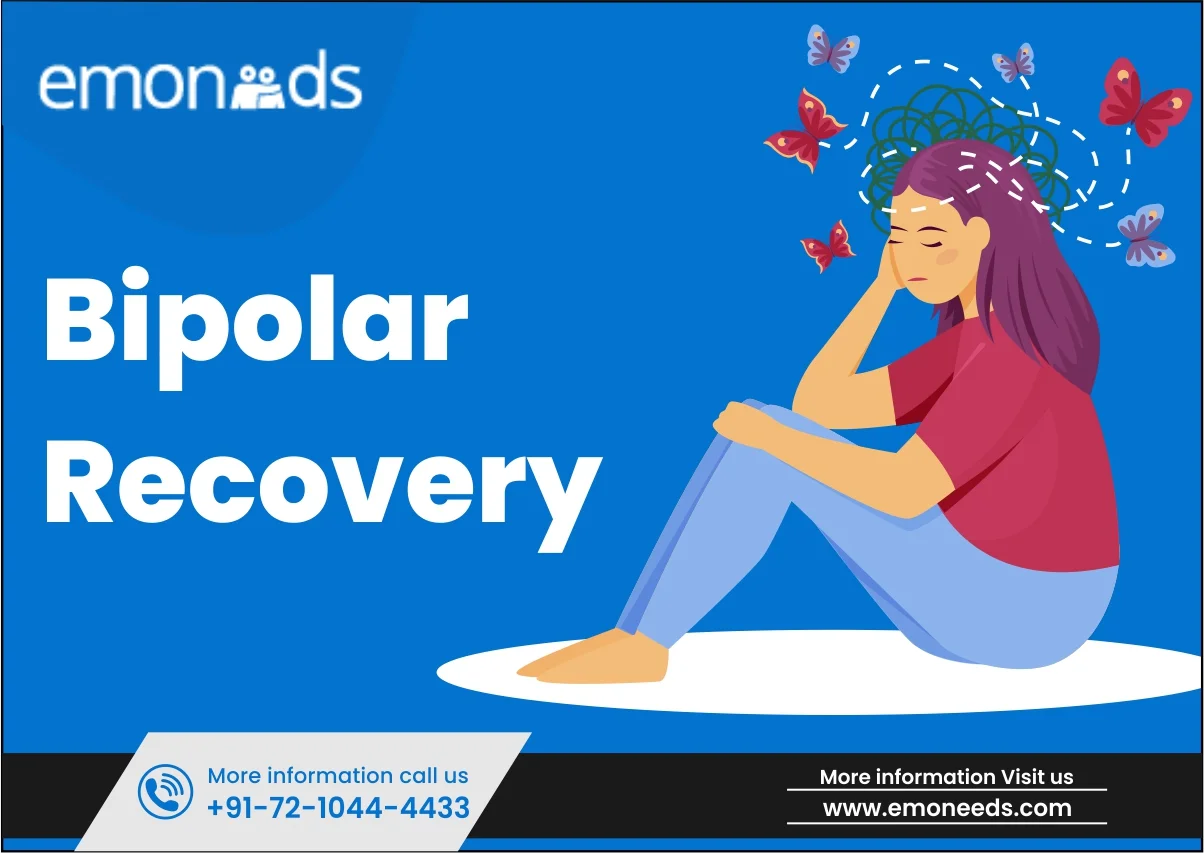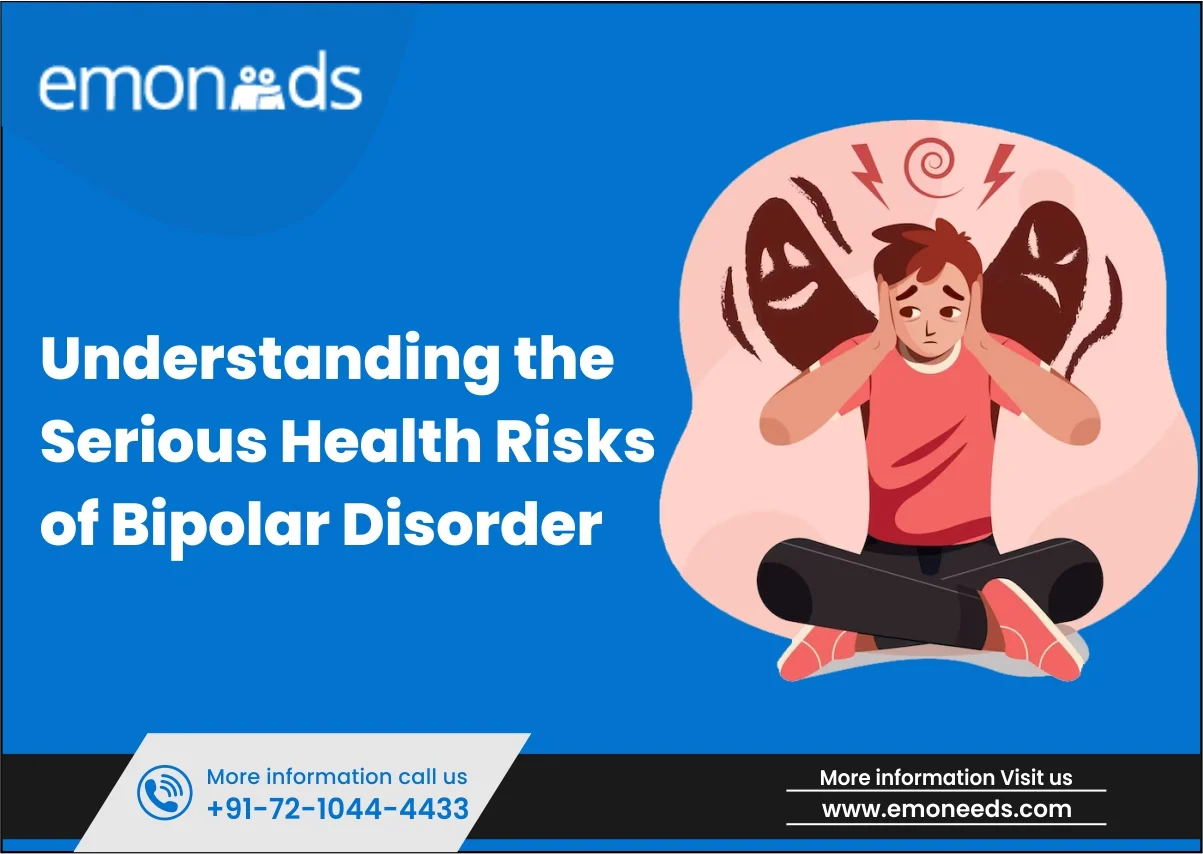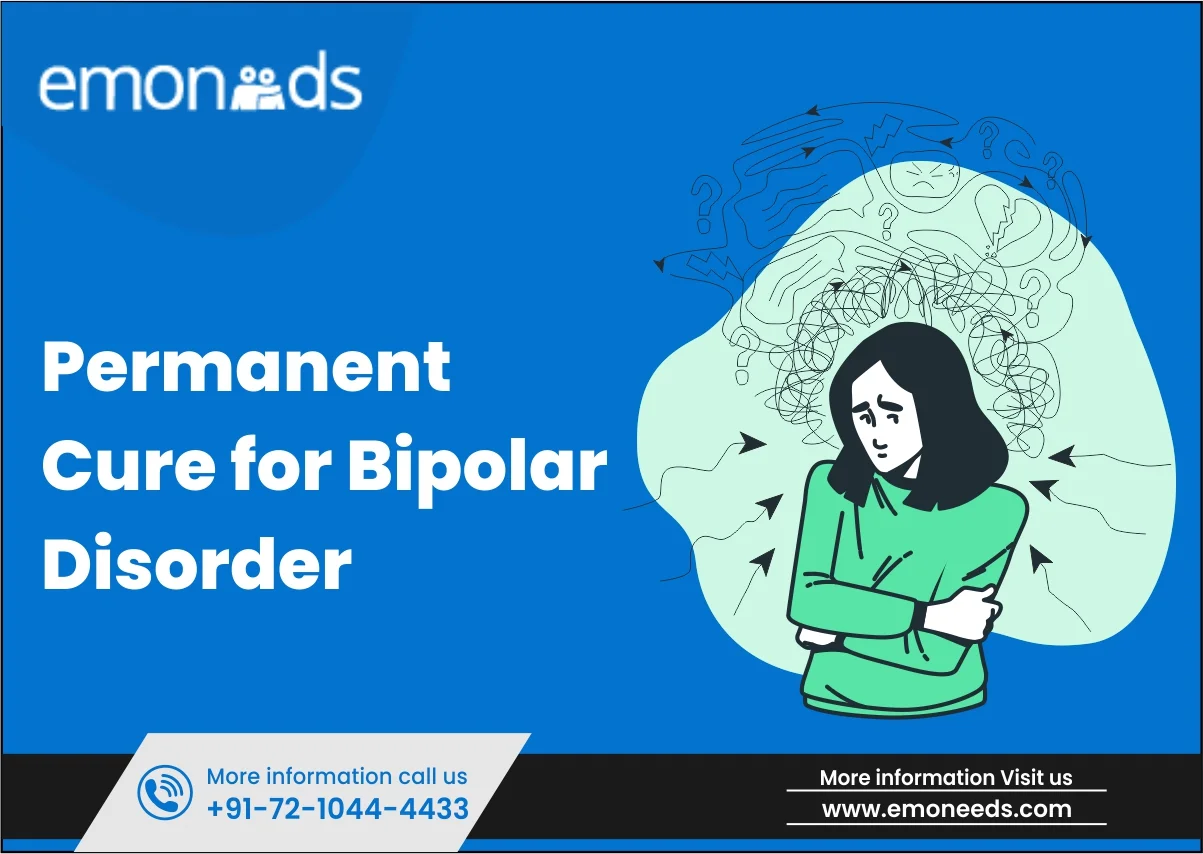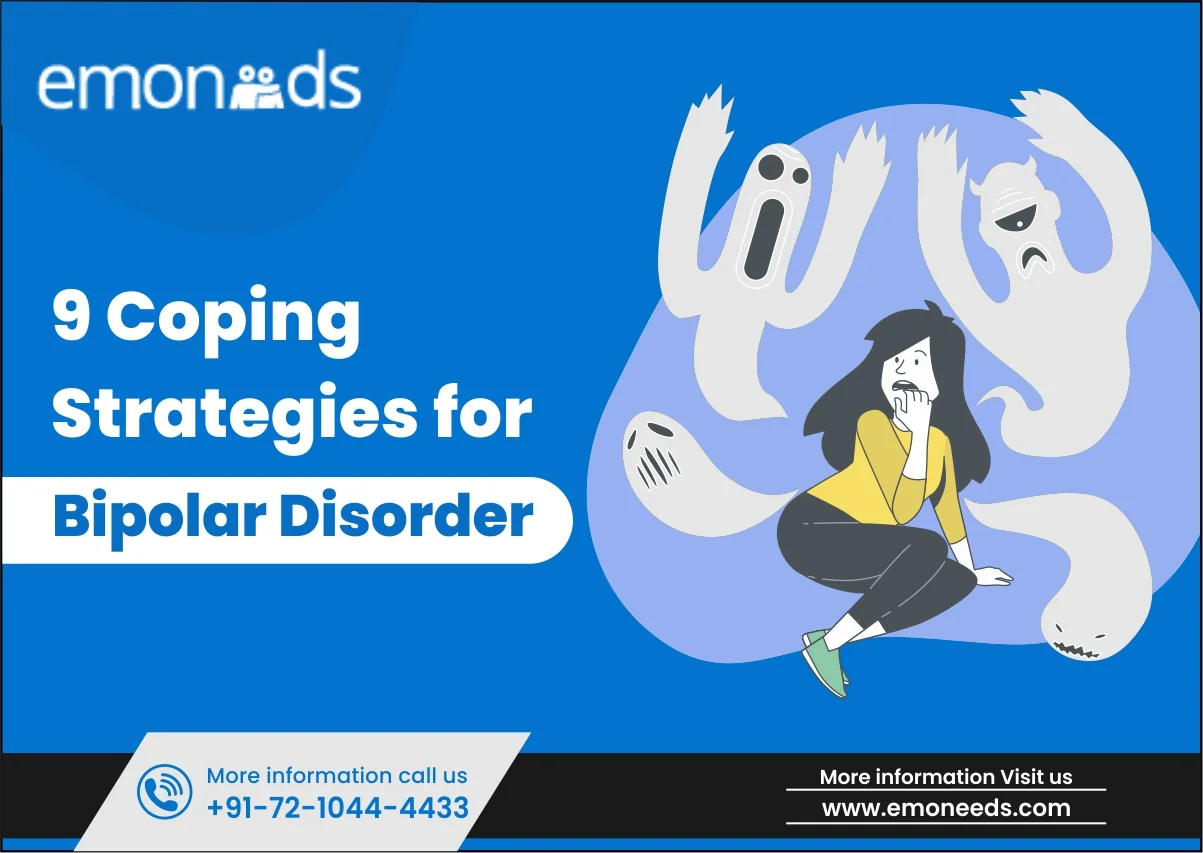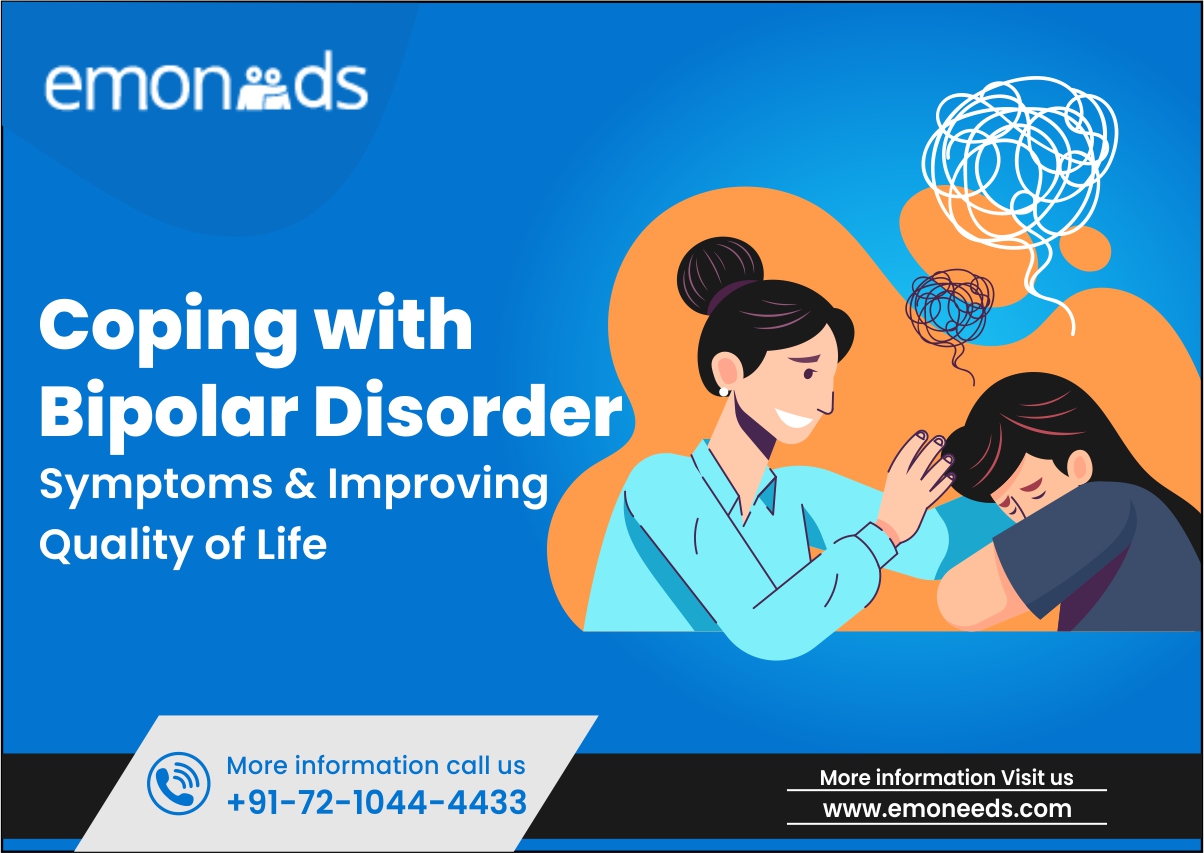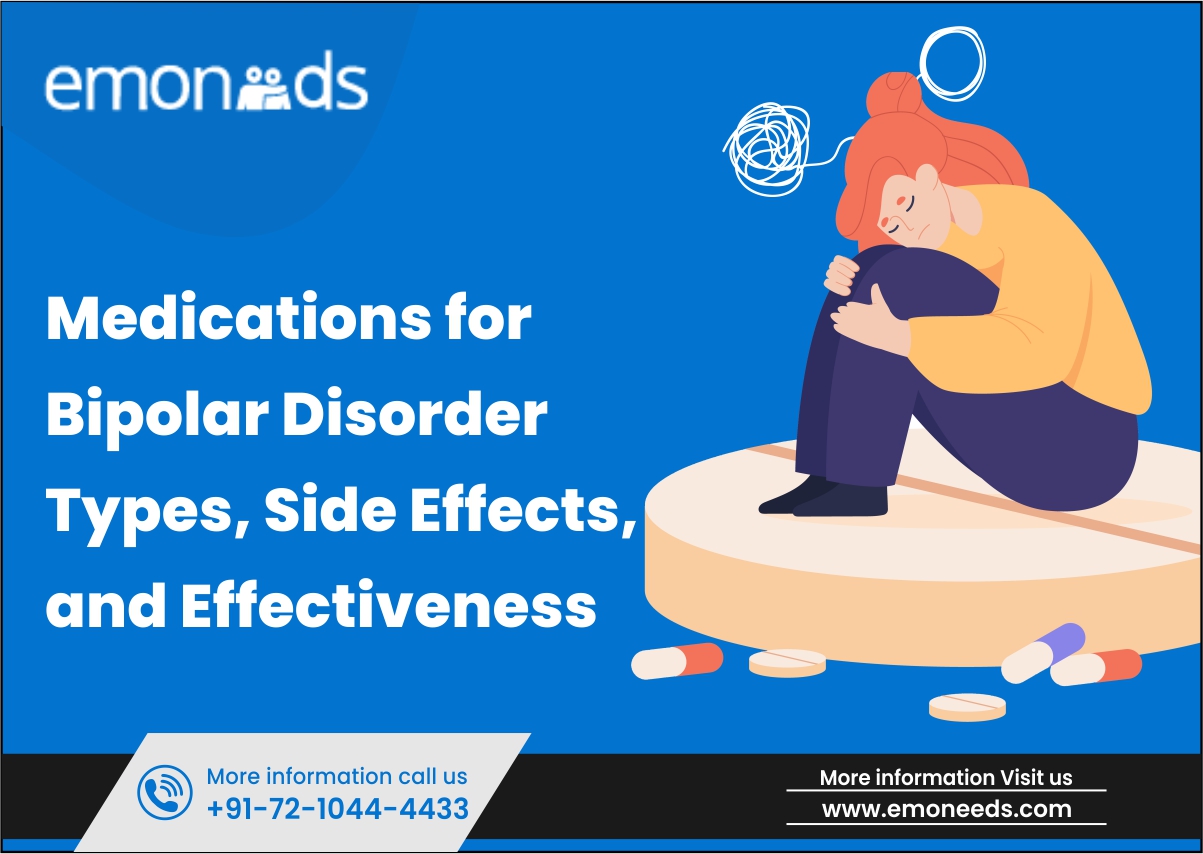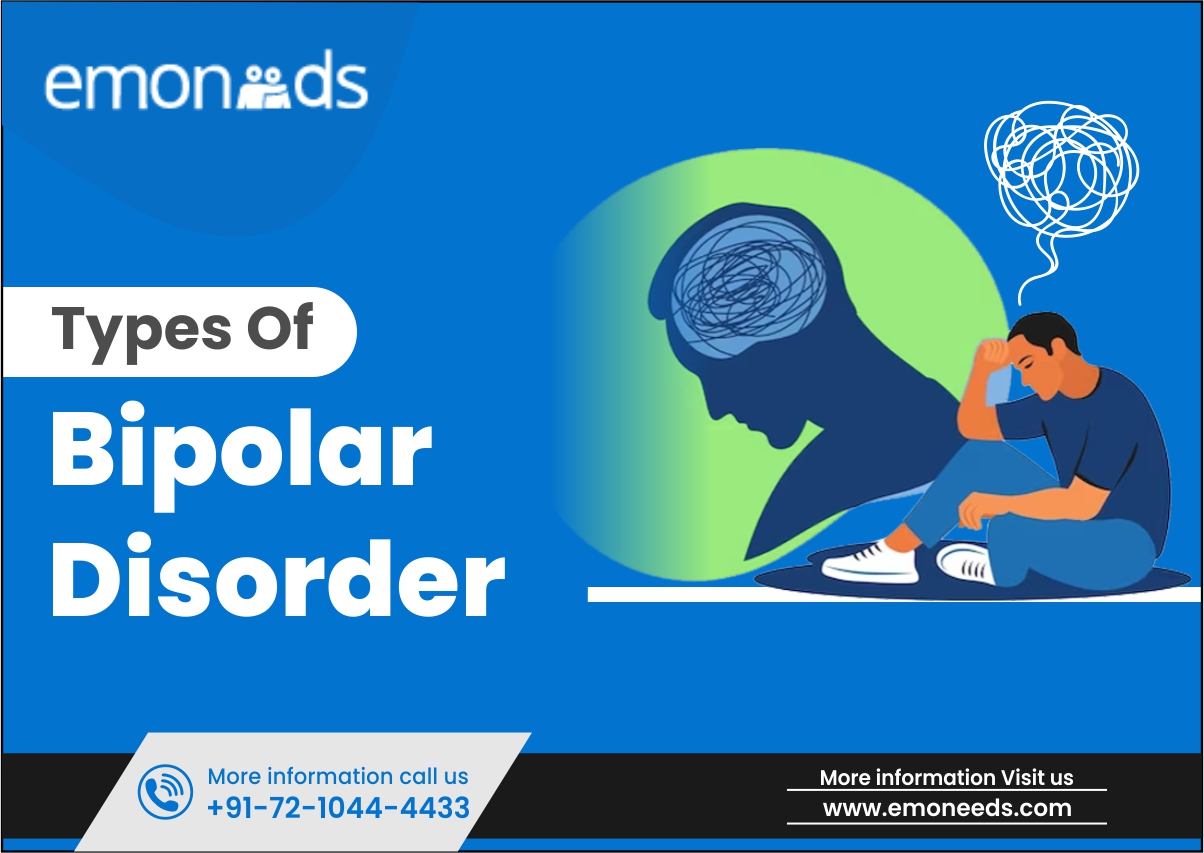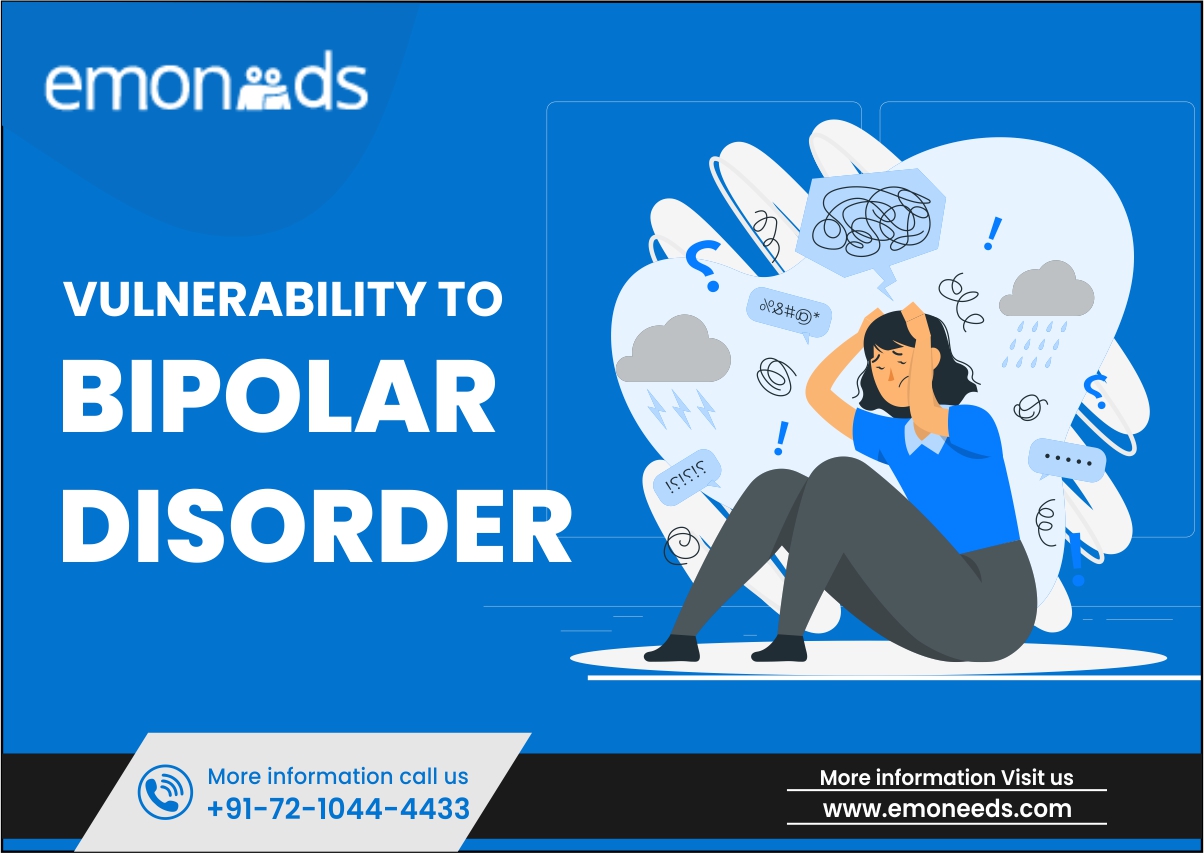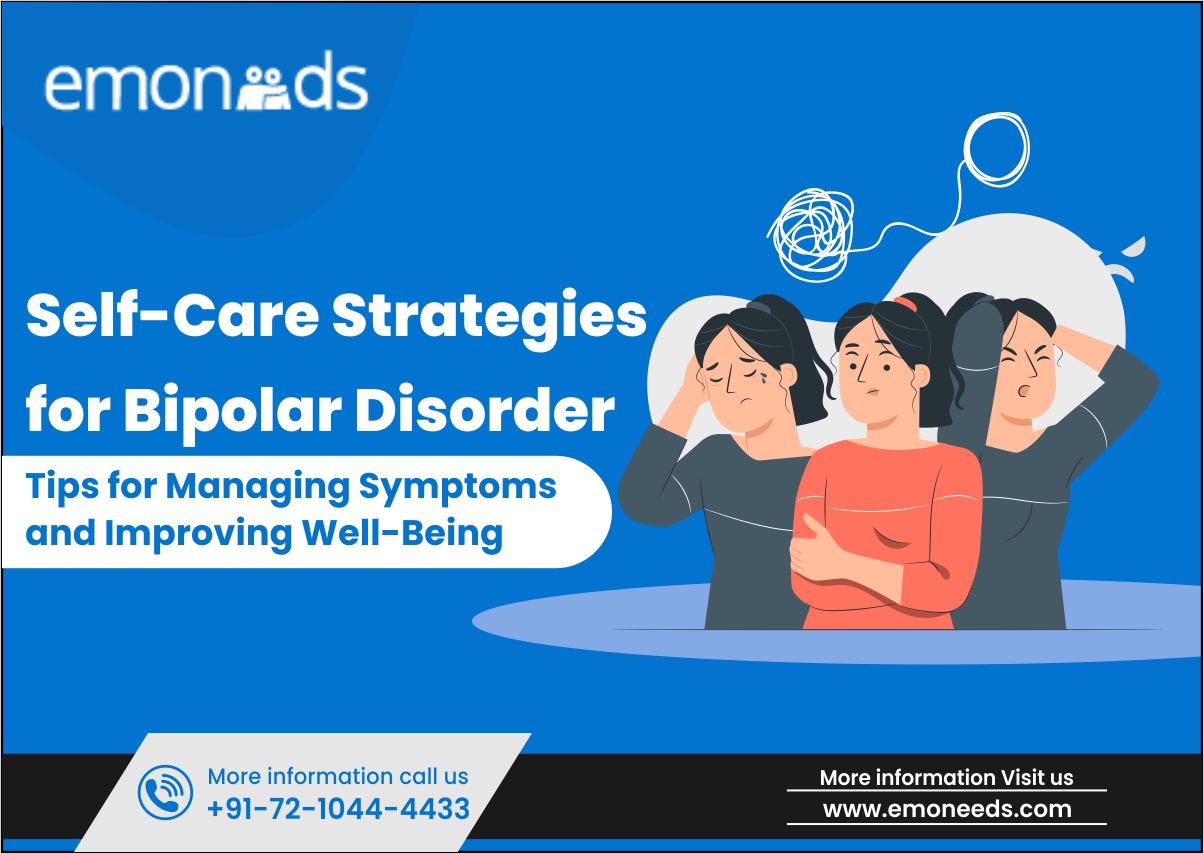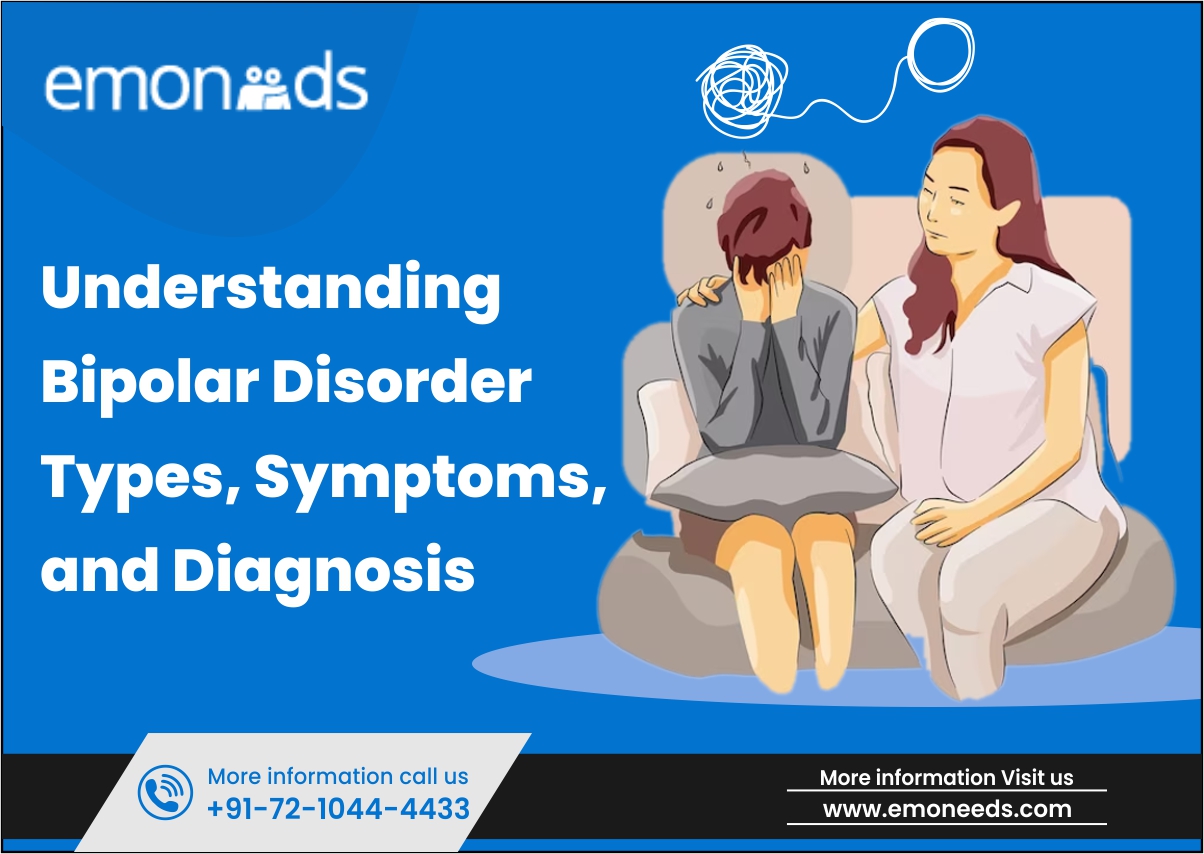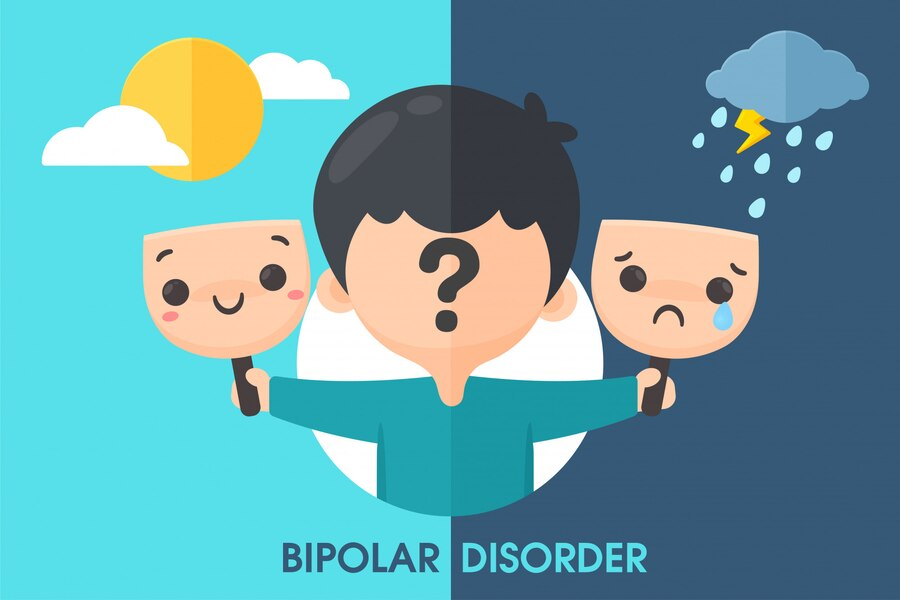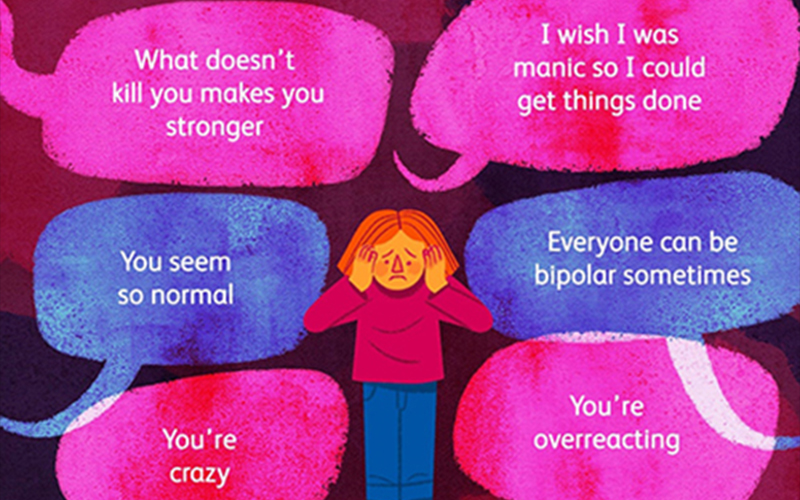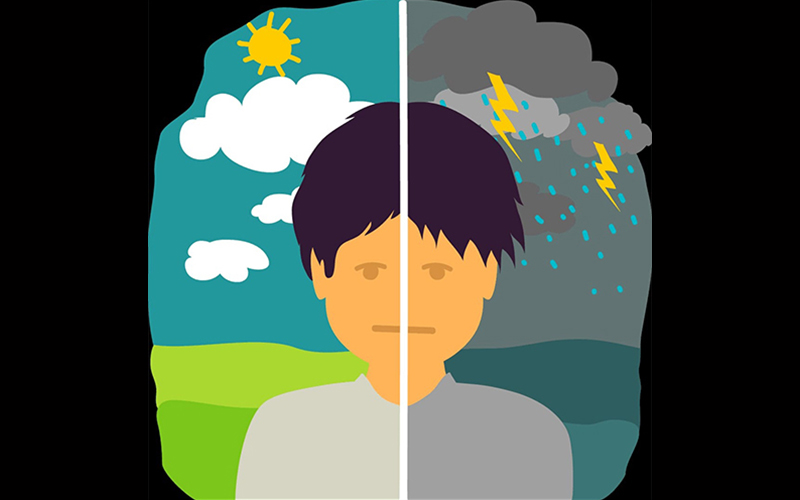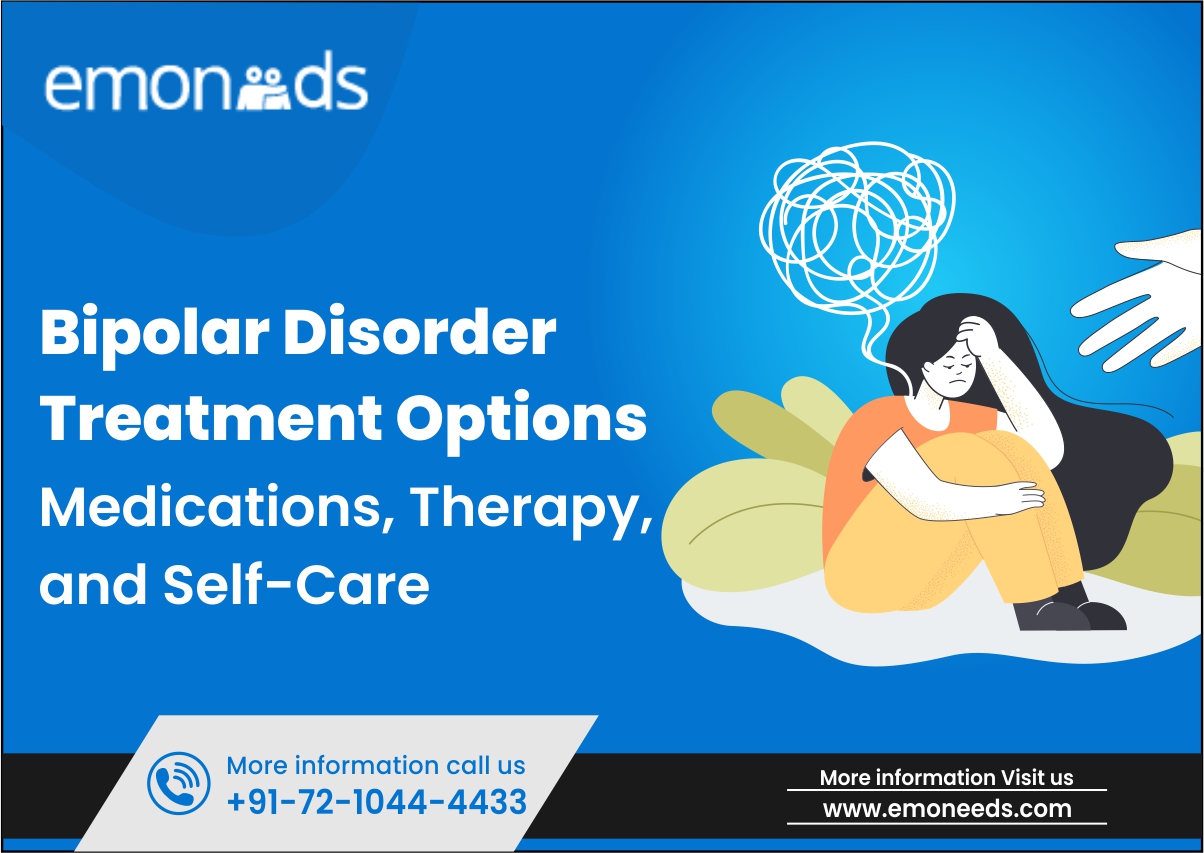
- July 31, 2023
- Saloni Kabra
- 0
Living with bipolar disorder presents unique challenges that can significantly impact one’s quality of life. The intense fluctuations between manic highs and depressive lows can disrupt personal relationships, professional endeavors, and overall well-being. However, it’s crucial to remember that effective treatment options exist to help individuals with bipolar disorder navigate these challenges and find stability. By combining medications, therapy, and self-care strategies, individuals can regain control over their lives and achieve a sense of balance.
In this comprehensive blog, we will delve into the realm of bipolar disorder treatment, exploring the different facets that contribute to successful management. From medications that stabilize mood swings to therapeutic approaches that provide invaluable support, we will cover the essential tools that can make a difference. Additionally, we will emphasize the significance of self-care strategies in fostering well-being and minimizing the impact of bipolar disorder on daily life.
Table of Contents
ToggleMedications for Bipolar Disorder Treatment
A. Mood Stabilizers
When it comes to managing bipolar disorder, mood stabilizers emerge as a cornerstone of treatment. These medications play a crucial role in regulating mood swings and preventing the occurrence of manic or depressive episodes. By stabilizing the extreme highs and lows, individuals can experience improved stability and a reduction in the severity of symptoms.
Mood stabilizers come in different forms, each offering its own set of benefits and considerations. These medications work by restoring the balance of neurotransmitters in the brain, helping to control mood fluctuations. It is important to work closely with a healthcare professional to find the right mood stabilizer that suits an individual’s unique needs.
B. Antipsychotics
Antipsychotic medications are frequently used in bipolar disorder treatment, particularly during manic or depressive episodes. These medications help manage symptoms such as delusions, hallucinations, and disordered thinking. By targeting specific neurotransmitters in the brain, antipsychotics can help individuals regain a sense of control and stability.
While antipsychotics can be effective in managing symptoms, it is important to be aware of potential side effects. Regular monitoring and open communication with a healthcare provider can help address any potential side effects and find the right balance between symptom management and overall well-being.
C. Antidepressants
The use of antidepressants in bipolar disorder treatment requires careful consideration. While these medications can be beneficial during depressive episodes, they must be used cautiously to avoid triggering manic episodes. Often, antidepressants are prescribed in conjunction with mood stabilizers to strike a delicate balance between managing depression and minimizing the risk of destabilization.
Regular monitoring is crucial to identify any signs of mood destabilization and make adjustments to the treatment plan if necessary.
Therapy Approaches for Bipolar Disorder
A. Cognitive Behavioral Therapy (CBT)
Cognitive Behavioral Therapy (CBT) has shown great promise as an effective therapeutic approach for individuals with bipolar disorder. This evidence-based treatment focuses on identifying and challenging negative thought patterns and behaviors that contribute to mood swings and problematic behaviors. CBT helps individuals develop coping mechanisms, manage stress more effectively, and reduce the risk of relapse.
In CBT, individuals work closely with a trained therapist to gain awareness of their thoughts, emotions, and behaviors. They learn to identify automatic negative thoughts and replace them with more balanced and realistic ones. By challenging distorted thinking, individuals can gain control over their reactions and develop healthier responses to triggers. CBT also teaches problem-solving skills, enhancing the individual’s ability to manage life stressors. CBT provides valuable tools for navigating the challenges that bipolar disorder presents.
B. Psychoeducation
Psychoeducation is a crucial aspect of bipolar disorder treatment that empowers individuals and their families with knowledge and understanding. This approach aims to provide a deeper understanding of the condition, its causes, and its effects. By learning about the underlying mechanisms of bipolar disorder, individuals can better recognize and manage symptoms.
Psychoeducation equips individuals with the tools to identify early warning signs of mood shifts and impending episodes. By recognizing these signs, individuals can take proactive steps to prevent or minimize the impact of mood swings. It also helps individuals understand the importance of adhering to medication regimens and seeking professional help when needed.
In addition to individual education, involving family members in psychoeducation can strengthen the support system. Loved ones gain insights into the challenges faced by individuals with bipolar disorder and learn strategies to offer appropriate support. This shared understanding fosters empathy, reduces stigma, and promotes a more cohesive and supportive environment.
C. Interpersonal and Social Rhythm Therapy (IPSRT)
Interpersonal and Social Rhythm Therapy (IPSRT) recognizes the intricate interplay between social rhythms and mood stability. This therapeutic approach focuses on establishing and maintaining regular daily routines, sleep schedules, and social activities. By stabilizing these rhythms, individuals can promote stability and reduce the risk of mood episodes.
IPSRT integrates psychosocial interventions with an understanding of biological rhythms. The therapy addresses the disruptions that occur in daily routines, such as irregular sleep patterns, inconsistent meal times, and disorganized social activities. By establishing structure and consistency, individuals can minimize disruptions to their biological rhythms, which play a significant role in mood regulation.
Self-Care Strategies for Bipolar Disorder
A. Sleep and Routine
Sleep plays a significant role in bipolar disorder management. Establishing a consistent sleep schedule is crucial for stabilizing mood and preventing episodes. By going to bed and waking up at the same time each day, individuals can regulate their circadian rhythm, which directly impacts mood.
Creating a calming bedtime routine, such as avoiding stimulating activities before bed and creating a soothing sleep environment, can promote better sleep quality.
Maintaining a daily routine beyond sleep is also beneficial. Having a structured schedule provides a sense of stability and predictability, reducing stress and minimizing the risk of mood disruptions.
B. Stress Management
Stress is a significant trigger for mood episodes in individuals with bipolar disorder. Therefore, implementing effective stress management techniques is crucial for maintaining stability. Engaging in regular exercise, such as walking, jogging, or yoga, helps release tension and promotes the production of endorphins, which are natural mood boosters.
Practicing relaxation techniques like deep breathing, progressive muscle relaxation, or meditation can help individuals manage stress and promote emotional stability. Taking time for oneself, engaging in hobbies, and pursuing activities that bring joy and relaxation are also important for reducing stress levels.
C. Healthy Lifestyle Choices
Adopting a healthy lifestyle is beneficial for individuals with bipolar disorder. A balanced diet rich in fruits, vegetables, whole grains, lean proteins, and healthy fats provides the body and brain with essential nutrients. Avoiding excessive consumption of caffeine, alcohol, and substances that can disrupt mood is important. Substance abuse can exacerbate symptoms and interfere with the effectiveness of medications.
Engaging in regular physical activity has multiple benefits. Exercise not only helps manage weight and improve physical health but also promotes the release of endorphins, which can enhance mood and overall well-being. Building a supportive social network is also crucial. Surrounding oneself with understanding and empathetic individuals can provide emotional support during difficult times.
D. Mindfulness and Meditation
Mindfulness and meditation practices can be transformative for individuals with bipolar disorder. By cultivating present-moment awareness and non-judgmental acceptance, mindfulness helps individuals manage stress, regulate emotions, and improve overall well-being. Taking a few minutes each day to engage in mindfulness exercises, such as focused breathing or body scan meditations, can enhance self-awareness and promote emotional stability.
Practicing mindfulness can help individuals recognize early signs of mood shifts, allowing for proactive interventions. It also supports the development of a healthier relationship with one’s thoughts and emotions, reducing reactivity and promoting a sense of calm.
Conclusion
Effectively managing bipolar disorder requires a comprehensive approach that encompasses medications, therapy, and self-care strategies. If you or someone you know is struggling with bipolar disorder, it is important to seek professional help from healthcare providers experienced in treating this condition. They can guide you in developing a personalized treatment plan that incorporates the appropriate medications, therapy approaches, and self-care strategies for your unique needs.
Remember, you are not alone in this journey. Emoneeds provide a safe space to seek support, share insights, and find encouragement along the way. Through Emoneeds, you can find understanding, encouragement, and valuable insights to help you navigate your bipolar disorder journey. Join Emoneeds today and discover a platform that fosters connection and empowers you on your path toward stability and well-being.
